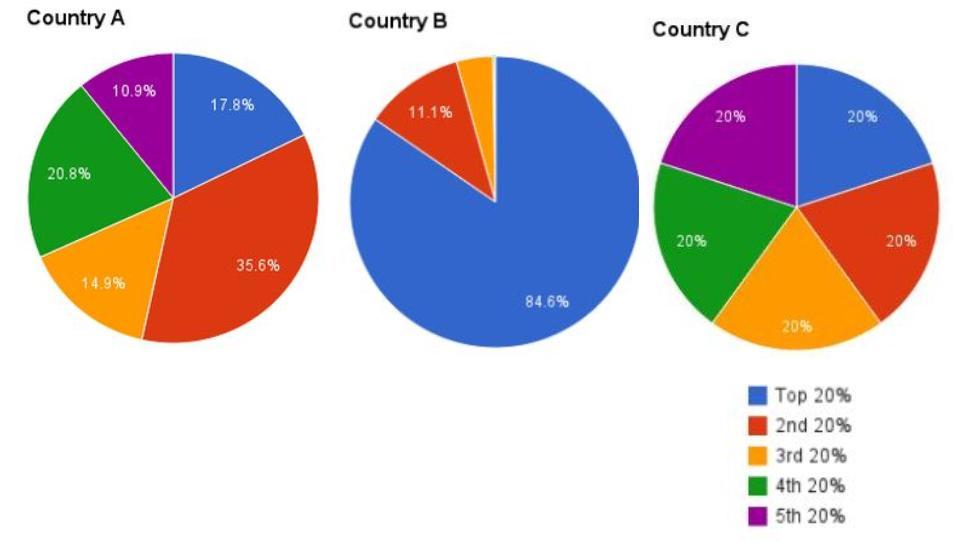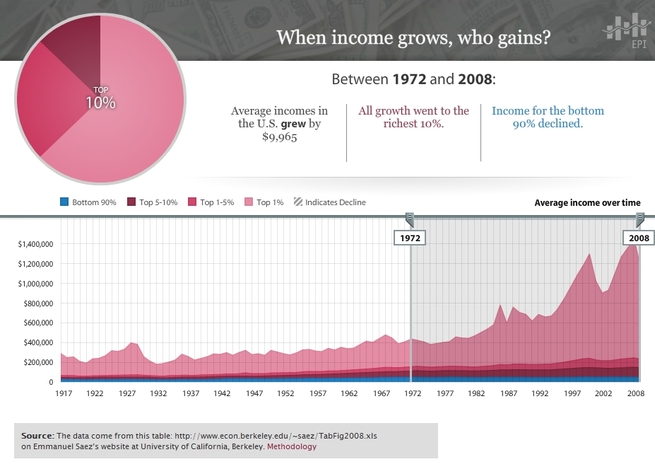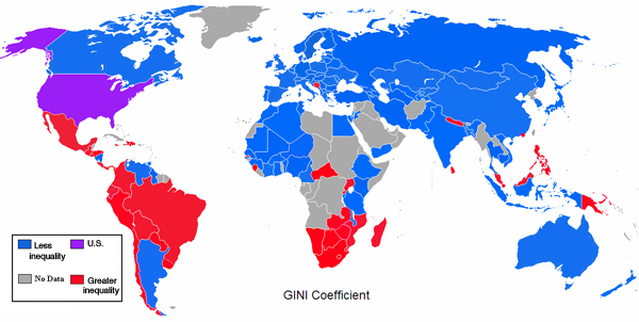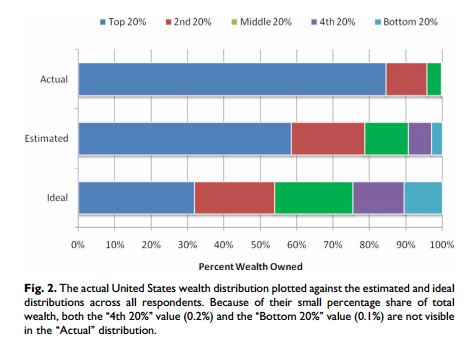Country A is Sweden, Country B the United States and Country C a true hypothetical with completely even distribution. In the study most individuals regardless of personal wealth or political orientation did not choose the United States, in fact only 10% did.
We live in a country in which the top 1/5 of the population controls 86% of the wealth. To illustrate how extreme this can be one need only look at your neighborhood Walmart. The six Walton heirs have more wealth than the bottom 41.5% of Americans! Six human beings > 48.8 million households (not individuals, households). Can anyone say with a straight face that this is morally right, healthy for our country, or a good thing for anyone’s economic future and otherwise?
I understand the viewpoint that we want to attract the best and brightest to positions of influence in our country but is this how drastic it needs to be? The last three decades have seen an incredible acceleration of executive pay. In fact CEO pay has grown 127x faster than average worker pay over the last 30 years. In the 1950’s, 60’s and earlier were people not compensated enough for their hard work and leadership?
I know a rising tide is supposed to lift all boats but it seems that even as our GDP per capita continues to grow the trend of inequality is growing much worse and doesn’t show any signs of letting up (see graph). Unfortunately yet unsurprisingly it harms our country’s minorities, the historically oppressed, the most. This is especially troubling for all when you couple this with the fact that the groups that have the smallest piece of the pie, and therefore least opportunity, are the fastest growing demographic. Does this speak to a bright future for America?





 RSS Feed
RSS Feed